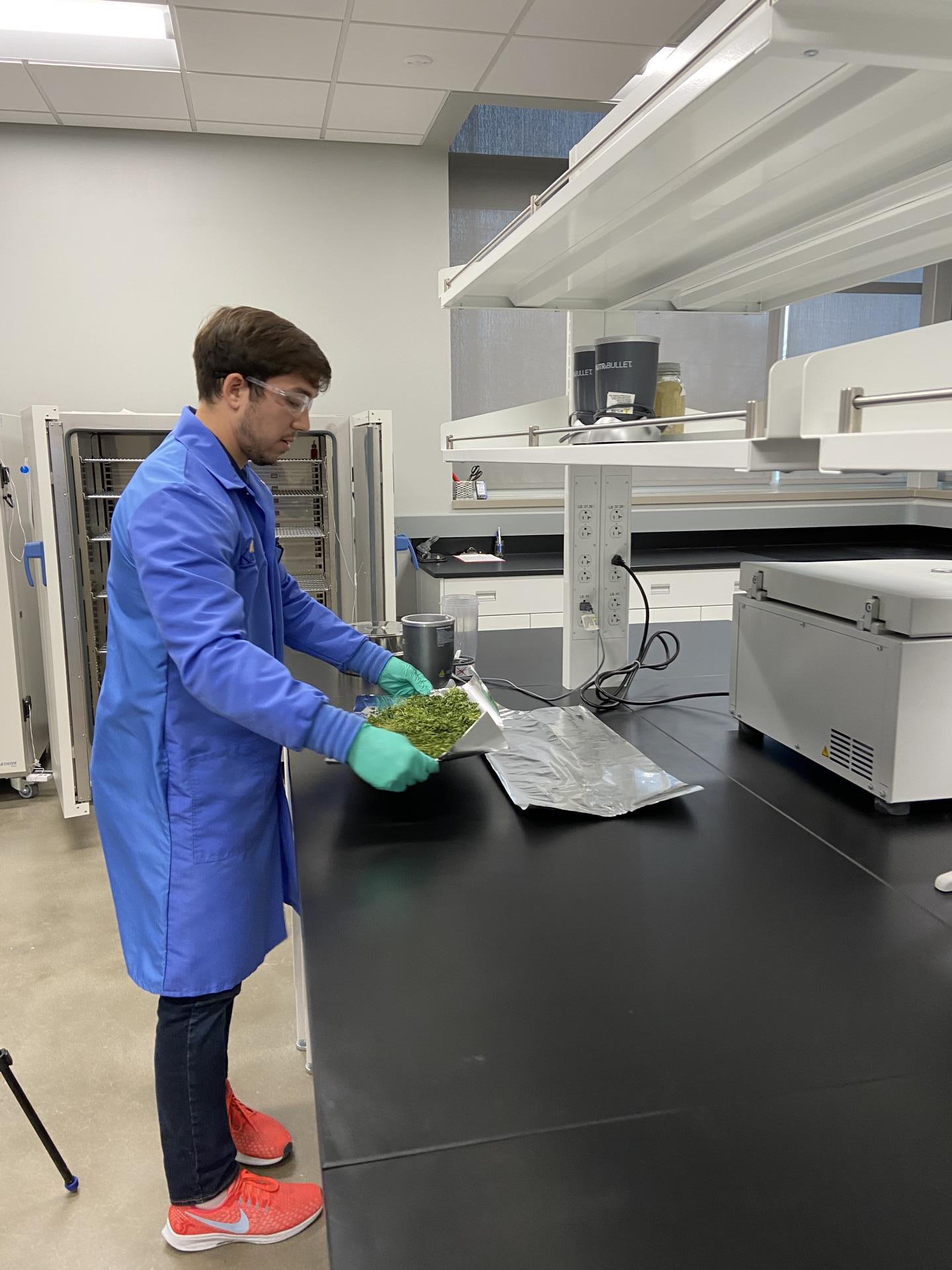 After samples are received in the laboratory, we use a drying oven to remove moisture. This is important so that we can report the results on a dry weight basis, which meets USDA reporting guidelines. After a hemp sample is dried, it is placed in a sample grinder to reduce particle size. Grinding is an important step so that we have a homogeneous, ground specimen that represents the hemp plant sample that was collected. Then we prepare the ground material for testing by adding a solvent followed by sonication. This step ensures that THC and its acid form dissolve into the solvent so we can measure these two compounds with a liquid chromatography platform. After we have analyzed a hemp sample, we calculate total THC and then convert it to a dry weight basis.
After samples are received in the laboratory, we use a drying oven to remove moisture. This is important so that we can report the results on a dry weight basis, which meets USDA reporting guidelines. After a hemp sample is dried, it is placed in a sample grinder to reduce particle size. Grinding is an important step so that we have a homogeneous, ground specimen that represents the hemp plant sample that was collected. Then we prepare the ground material for testing by adding a solvent followed by sonication. This step ensures that THC and its acid form dissolve into the solvent so we can measure these two compounds with a liquid chromatography platform. After we have analyzed a hemp sample, we calculate total THC and then convert it to a dry weight basis.
According to Kansas regulations, commercial or industrial hemp must be tested within 15 days of harvest. The hemp testing lab is very mindful of the turnaround time for test results so that the regulatory program and the grower receive their results before the scheduled harvest date. We have a team of chemists in other areas of the laboratory who assist hemp testing area during the busy harvest season. During off-season, our chemists maintain their capability to handle and test industrial hemp by participating in recognized proficiency testing programs.